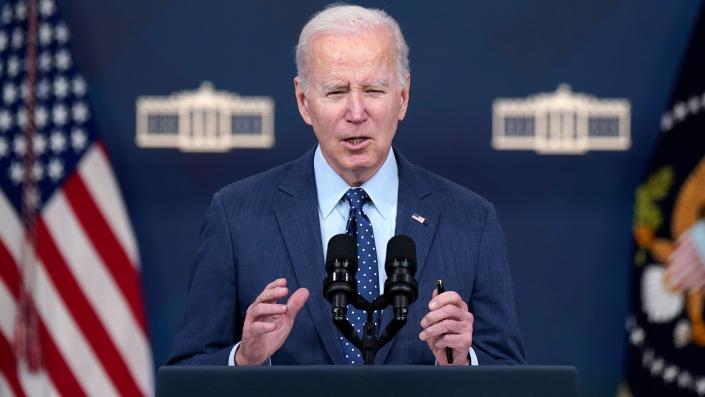Bankrupt Serta Simmons Bedding LLC’s recent court win for a deal to get a cash infusion from creditors who were then moved up higher in payout priority bolsters other distressed companies’ odds of pursuing the controversial debt restructuring tactic.
The US Bankruptcy Court for the Southern District of Texas’s June decision is the first time a court ruled on the merits on the so-called debt liability management deals that have spurred lender-on-lender disputes, attorneys said.
The issue has come up before, both in and out of bankruptcy cases. But Judge David R. Jones’ opinion in Serta’s Chapter 11 could embolden more companies and lenders to employ the strategy in the estimated $1.4 trillion market for syndicated commercial loans.
“It is somewhat of a momentous ruling,” said Jennifer Taylor, a partner at O’Melveny & Myers LLP.
Among the companies that have similarly controversial debt management deals and sought bankruptcy in Houston are Incora, Diebold Nixdorf, and KKR Co.’s Envision Healthcare Corp.
TPC Group, J. Crew, and Neiman Marcus have also pursued deals and landed in bankruptcy.
Open-Market Purchase
Serta, one of the largest US bedding makers and distributors in North America, filed for Chapter 11 in January with about $1.9 billion in debt. The company had already faced litigation in New York over its 2020 deal that provided a $200 million cash infusion from certain existing lenders. Those lenders, including Credit Suisse Asset Management, were moved up higher in the priority list of creditors who will be paid back first.
The legal dispute continued in the Houston bankruptcy court, where Serta sought Jones’ sign-off on the 2020 transaction.
The debt restructuring deal didn’t go over well with lenders who were not included, including Apollo Global Management Inc. and Angelo Gordon & Co.
The lenders who were shut out had, under their 2016 debt contracts governing $2.6 billion in loans, previously held the same level of priority as those who were offered the deal. But after Serta’s deal, they wouldn’t be repaid the loans they provided until the included lenders finishing collecting what they were owed.
The excluded lenders argued that the transaction violated the contract’s “open markets purchase” requirement.
But Jones said an open markets purchase is “something obtained for value in competition among private parties.” Serta’s deal—in which the company purchased the loans back and the lenders reissued them—met the open market purchase requirement, Jones said.
“The parties could have easily avoided this entire situation with the addition of a sentence or two to the 2016 Credit Agreement,” Jones said in his ruling. “They did not.”
“Sophisticated financial titans engaged in a winner-take-all battle,” Jones said. “There was a winner and a loser. Such an outcome was not only foreseeable, it is the only correct result.”
In ‘Good Faith’
Jones’ opinion, which affirms pre-bankruptcy restructuring transactions, will likely encourage more debt management transactions, including the Serta-style “uptier” exchange deals, said Justin Forlenza, a senior covenant analyst at Covenant Review, which is part of Fitch Solutions.
“As we’ve started to see other liability management transaction debtors wind up in bankruptcy, this could be important as precedent,” Forlenza said.
Jones’ findings alleviate concern that such transactions violate an implied covenant of good faith under New York contract law, said Alston & Bird restructuring attorney J. Eric Wise.
Debt management deals that change priority of existing loans have become increasingly common, said Gregg Costa of Gibson, Dunn & Crutcher LLP, a former Fifth Circuit judge who represented Serta lenders that joined the deal.
Several other companies that have used such transactions have still landed in bankruptcy.
Kitchen goods maker Instant Brands Holdings Inc. filed for Chapter 11 in the Houston bankruptcy court in June after executing a liability management transaction with private investment firm Cornell Capital LLC.
‘Festival of Fees’
The June 6 opinion landed as Chapter 11 filings rise and higher interest rates change the commercial loan market dynamics.
Bankruptcy practitioners should be prepared to undertake and defend against such transactions, according to Rachel Ehrlich Albanese, a partner at DLA Piper LLP.
“Creditors should do what they can to protect themselves,” Albanese said. “At the same time, issuers should take advantage of flexibility in their credit documents to improve their financial situation.”
The lasting implications of the opinion may be that companies will have a better idea of how to use an open-market purchase option in their contracts, said Greg Nini, an associate professor of finance at Drexel University.
The ruling defines an open market purchase as something obtained for value in competition among private parties, Nini noted. Serta’s argument that it approached all the lenders to get the best deal possible had seemingly convinced Jones.
As Jones’ ruling is headed for an appeal, the question of whether the transactions are effective in saving companies or are merely postponing an inevitable bankruptcy remains open, Wise said.
“Have you achieved anything except for a festival of fees for professionals?” Wise said.



